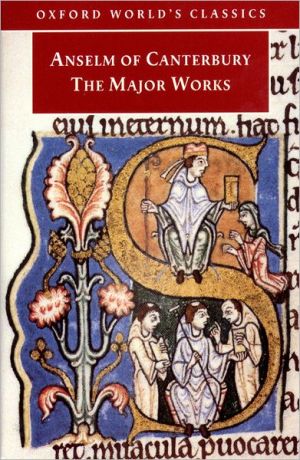
Anselm of Canterbury: The Major Works PDF
513 Pages·1998·1.4061 MB·other
Most books are stored in the elastic cloud where traffic is expensive. For this reason, we have a limit on daily download.
Preview Anselm of Canterbury: The Major Works
Description:
After Aquinas, Anselm is the most significant medieval thinker. Utterly convinced of the truth of the Christian religion, he was none the less determined to try to make sense of his Christian faith, and the result is a rigorous engagement with problems of logic which remain relevant for philosophers and theologians even today. This translation provides the first opportunity to read all of Anselm's most important works in one volume. - ;`For I do not seek to understand so that I may believe; but I believe so that I may understand. For I believe this also, that unless I believe, I shall not understand.' Does God exist? Can we know anything about God's nature? Have we any reason to think that the Christian religion is true? What is truth, anyway? Do human beings have freedom of choice? Can they have such freedom in a world created by God? These questions, and others, were ones which Anselm of Canterbury (c.1033-1109) took very seriously. He was utterly convinced of the truth of the Christian religion, but he was also determined to try to make sense of his Christian faith. Recognizing that the Christian God is incomprehensible, he also believed that Christianity is not simply something to be swallowed with mouth open and eyes shut. For Anselm, the doctrines of Christianity are an invitation to question, to think, and to learn. Anselm is studied today because his rigour of thought and clarity of writing place him among the greatest of theologians and philosophers. This translation provides readers with their first opportunity to read all of his most important works within the covers of a single volume. -
See more
The list of books you might like
Most books are stored in the elastic cloud where traffic is expensive. For this reason, we have a limit on daily download.
